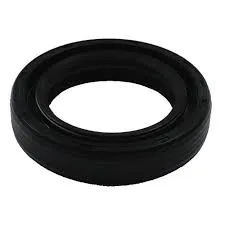10 月 . 09, 2024 23:57 Back to list
car engine gasket
Understanding Car Engine Gaskets Importance, Types, and Maintenance
Car engine gaskets may not be the first thing that comes to mind when you think of car maintenance, but they play a crucial role in ensuring the smooth performance of your vehicle. In this article, we will delve into what engine gaskets are, their importance, common types, and tips for maintenance.
What is an Engine Gasket?
An engine gasket is a mechanical seal that fills the space between two or more mating surfaces in an engine. It is designed to prevent the leakage of fluids or gases, ensuring that the engine operates efficiently. Gaskets are typically made of materials like rubber, silicone, cork, or metal, depending on the application and the temperatures they need to withstand.
Importance of Engine Gaskets
1. Preventing Leaks One of the primary functions of an engine gasket is to seal the various components of the engine, preventing oil, coolant, and combustion gases from leaking. This is vital for maintaining the proper pressure and temperature within the engine.
2. Ensuring Optimal Performance When gaskets fail, it can lead to a host of problems including a decrease in engine performance, increased fuel consumption, and even serious engine damage. A well-functioning gasket ensures that all engine components operate harmoniously.
3. Protecting Engine Components Engine gaskets play a crucial role in protecting internal components of the engine from debris and contaminants. By ensuring a tight seal, they help prolong the life of engine parts, reducing the need for costly repairs or replacements.
Common Types of Engine Gaskets
There are several types of gaskets in a car engine, each serving a specific function
1. Head Gasket This is perhaps the most critical gasket in an engine. It sits between the engine block and the cylinder head, sealing the combustion chamber, coolant passages, and oil passages. A blown head gasket can lead to significant engine damage and costly repairs.
2. Intake Manifold Gasket This gasket seals the intake manifold to the engine block. It prevents the intake air from leaking out and ensures that the air-fuel mixture reaches the combustion chamber efficiently.
3. Exhaust Manifold Gasket This gasket seals the exhaust manifold to the engine block. It is designed to handle high temperatures and prevent exhaust gases from leaking out into the engine bay.
car engine gasket

4. Valve Cover Gasket Located between the valve cover and the cylinder head, this gasket helps prevent oil leaks and keeps contaminants out of the engine.
5. Oil Pan Gasket This gasket seals the oil pan to the bottom of the engine. It ensures that oil stays contained within the pan and does not leak out.
Signs of Gasket Failure
Recognizing the signs of gasket failure early can save you from costly repairs. Here are some symptoms to watch out for
- Oil Leaks Visible drops of oil on the ground, especially beneath the engine, may indicate a failing gasket. - Overheating A blown head gasket can cause coolant to leak into the engine, leading to overheating. - Poor Fuel Economy If your vehicle is consuming more fuel than usual, a gasket leak might be the culprit. - Rough Engine Performance Misfires or a drop in power may signal a problem with the gaskets that seal the intake or exhaust systems.
Maintenance Tips
To ensure the longevity and performance of your engine gaskets, consider the following maintenance tips
1. Regular Inspections Periodically check for any signs of oil or coolant leaks, especially after long drives or engine repairs.
2. Use Quality Parts When replacing gaskets, opt for high-quality, OEM (Original Equipment Manufacturer) parts to ensure a proper fit and long-lasting seal.
3. Follow Manufacturer Recommendations Adhere to your vehicle’s maintenance schedule, including oil changes and other servicing that can prevent excessive wear on gaskets.
4. Monitor Engine Temperature Keep an eye on your vehicle’s temperature gauge. Overheating can lead to gasket failure, so addressing cooling system issues promptly is essential.
In conclusion, engine gaskets are vital components that contribute significantly to the function and efficiency of your vehicle. Regular maintenance and timely repairs can help ensure that your engine runs smoothly, ultimately extending the life of your car and enhancing your driving experience.